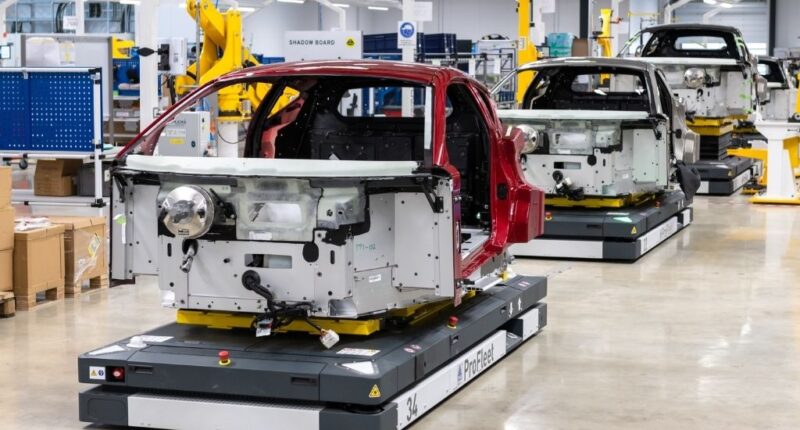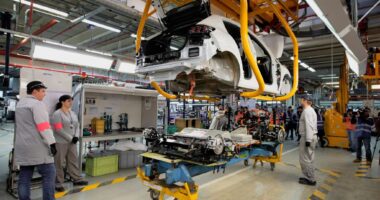The UK car industry is having to contend with wide-ranging issues that continue to “undermine output and competitiveness”, according to the Society of Motor Manufacturers and Traders (SMMT).
In the latest set of monthly SMMT figures, they show production fell by over 11% in April meaning 60,554 units were built on assembly lines up and down the country.
The poor performance is being blamed on the ongoing global shortage of semi-conductors, the impact of the war in Ukraine on supply chains, model changes and broader industry structural changes. Combined, these contributed to “a volatile month’s output”.
These factors also had a significant effect on year-on-year export comparisons, with the closure of Honda’s Swindon plant last summer continuing to impact export figures, particularly to the US market.
7,752 fewer cars were made in the month than a year before and the total was down 14.7% on the April 2019 pre-pandemic level. This was itself down 44.5% on April 2018, due to shutdowns rescheduled to mitigate against the possibility of a no-deal Brexit.
The overall picture was mixed as production output for overseas markets fell by 20.8%, driven by a 68% decline in shipments to America, and a 10.4% drop in those to Asia. Six-in-10 cars exported headed to the EU, representing a 5% uplift in shipments there, while production for the UK grew for the second month in a row, up 60.1%.
This substantial rise was primarily the result of new models coming to market, attracting buyers into showrooms, but “is flattered by comparison with April 2021 when the economy was restarting after lockdown with demand subdued”, the SMMT said.
The statistics confirm that, despite the incredibly tough economic backdrop, UK car makers continue to shift focus towards the latest battery electric, plug-in hybrid and hybrid vehicles technologies.
More than one-in-four (26.4%) cars assembled in April was electrified – the equivalent to 16,010 units, a rise of 2.1% on the same month a year ago. This was helped by battery electric vehicle output soaring 38.2%.
Commenting on the figures, SMMT Chief Executive Mike Hawes said: “The UK car industry is exposed to a host of issues that are undermining output and competitiveness. Global chip shortages and supply chain disruption are exacerbated by spiralling energy costs, additional trading costs and slowing global markets.
“The foundations of the sector are strong and the transition to zero and ultra-low emission vehicles continues apace but we need more policies and measures that support manufacturing and encourage investment into the UK at this most challenging of times.”









